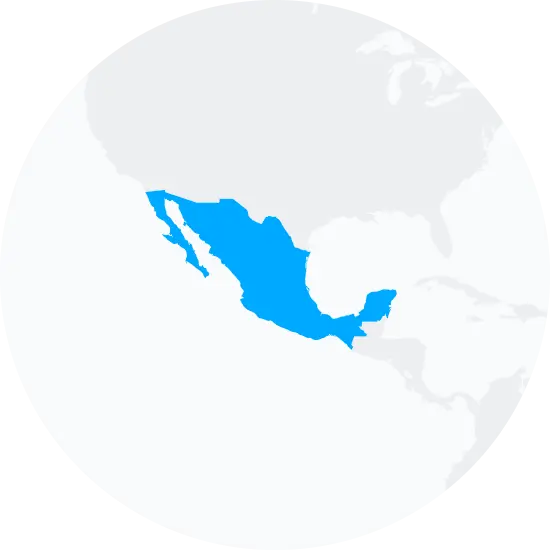Explore the Family Name Aranda
How common is the last name Aranda in the United States?
Based on the Decennial U.S. Census data, the surname Aranda increased in popularity between 2000 and 2010. In 2000, it held the rank of 2268 out of all surnames in the United States, but by 2010, it had risen to the 1861st position, representing a change of 17.95 percent. The count of individuals with this surname also grew from 14,683 in 2000 to 19,298 in 2010, marking a considerable increase of 31.43 percent. This data indicates that for every 100,000 people in the U.S., approximately 6.54 had the surname Aranda in 2010, up by 20.22 percent from 5.44 in 2000.
| 2000 | 2010 | Change | |
|---|---|---|---|
| Rank | #2,268 | #1,861 | 17.95% |
| Count | 14,683 | 19,298 | 31.43% |
| Proportion per 100k | 5.44 | 6.54 | 20.22% |
Race and Ethnicity of people with the last name Aranda
In terms of ethnic identity, the Decennial U.S. Census data shows that the majority of individuals with the surname Aranda identified as Hispanic in both 2000 and 2010. This group increased slightly from 89.11 percent to 90.78 percent. Meanwhile, the proportion identifying as White saw a decrease of 19.61 percent, dropping from 7.14 percent to 5.74 percent. The number of Arandas who identified as Asian/Pacific Islander also decreased slightly, from 2.49 percent to 2.30 percent. Those reporting two or more races decreased by 25.53 percent, while the American Indian and Alaskan Native category saw a drop of 23.33 percent. Interestingly, the proportion identifying as Black showed an increase, albeit small, from 0.49 percent to 0.61 percent.
| 2000 | 2010 | Change | |
|---|---|---|---|
| Hispanic | 89.11% | 90.78% | 1.87% |
| White | 7.14% | 5.74% | -19.61% |
| Asian/Pacific Islander | 2.49% | 2.3% | -7.63% |
| Black | 0.49% | 0.61% | 24.49% |
| Two or More Races | 0.47% | 0.35% | -25.53% |
| American Indian and Alaskan Native | 0.3% | 0.23% | -23.33% |
Aranda ancestry composition
23andMe computes an ancestry breakdown for each customer. People may have ancestry from just one population or they may have ancestry from several populations. The most commonly-observed ancestry found in people with the surname Aranda is Spanish & Portuguese, which comprises 36.3% of all ancestry found in people with the surname. The next two most common ancestries are Indigenous American (28.8%) and British & Irish (12.5%). Additional ancestries include French & German, Filipino & Austronesian, Eastern European, Italian, and Ashkenazi Jewish.
Ready to learn more about your ancestry? Get the most comprehensive ancestry breakdown on the market by taking our DNA test. Shop 23andMe
| ANCESTRY BREAKDOWN | COMPOSITION |
|---|---|
| Spanish & Portuguese | 36.3% |
| Indigenous American | 28.8% |
| British & Irish | 12.5% |
| Other | 22.4% |

Possible origins of the surname Aranda
Your DNA provides clues about where your recent ancestors may have lived. Having many distant relatives in the same location suggests that you may all share common ancestry there. Locations with many distant relatives can also be places where people have migrated recently, such as large cities. If a large number of individuals who share your surname have distant relatives in a specific area, it could indicate a connection between your surname and that location, stemming from either recent ancestral ties or migration.
Based on 23andMe data, people with last name Aranda have recent ancestry locations all within Mexico.
| RECENT ANCESTRY Location | Percentage |
|---|---|
| San Luis Potosi, Mexico | 64.90% |
| Guerrero, Mexico | 64.90% |
| Nuevo Leon, Mexico | 64.90% |
| Nayarit, Mexico | 64.90% |
| Sonora, Mexico | 64.90% |
What Aranda haplogroups can tell you
Haplogroups are genetic population groups that share a common ancestor on either your paternal or maternal line. These paternal and maternal haplogroups shed light on your genetic ancestry and help tell the story of your family.
The top paternal haplogroup of people with the surname Aranda is R-P311, which is predominantly found among people with European ancestry. Haplogroup R-P311 is descended from haplogroup R-M343. Other common haplogroups include Q-M3 and R-Z214, which are predominantly found among people with East Asian & Indigenous American and European ancestry. Other surnames with similar common haplogroups are: Bustamante, Cuellar, Hidalgo, Munoz, Valenzuela, Rubio, Suarez, Moreno, Maldonado, Carranza.
The most common maternal haplogroups of people with Aranda surname are: A2, H, B2. These most commonly trace back to individuals of European ancestry.
 Paternal Haplogroup Origins R-M343
Paternal Haplogroup Origins R-M343Your maternal lineage may be linked to some of the first Americans
Though the Ice Age was beginning to retreat when your A2 ancestors first entered North America, there were still massive barriers blocking their way. Glaciers and inhospitable climate covered much of the continent, blocking entry into the interior. Nonetheless, researchers have found evidence that a wave of American founders migrated over 13,000 kilometers to reach southern Chile in only 2,000 years, a blink of an eye in the story of human migration! Their highway to the south was the coast of the Pacific, stocked with fish, diverse marine mammals, and other valuable resources in the rich kelp forests of the upper latitudes and in the abundant fresh-water rivers near the equator. Because of this rapid movement south, the A2 haplogroup and its diverse branches are found throughout North and South America.

What do people with the surname Aranda have in common?
Spoiler alert: it's complicated. People with the same last name are usually no more genetically similar than a randomly sampled group of people from the same population. That said, people with the same surname are more likely to have similar ancestries than randomly sampled individuals. The reason is the tendency of people with similar cultural or geographical backgrounds to preferentially mate with one another. That's why people who share a surname may be more likely to share traits and tendencies in common than people within the general population. Check out the percentages below to see the prevalences of tastes, habits, and traits of people with your surname compared with prevalences among 23andMe users.
Preferences
Traits
Habits
Wellness
Are health conditions linked to the last name Aranda?
The short answer is that, if there is an association between surname and health, it's usually more about your ancestry than your name. Individuals with a given surname are no more genetically similar than the general population but often have similar ancestries. The populations of people associated with those shared ancestries often have sets of genetic variations, also known as alleles, in common. Some of those alleles are associated with a greater likelihood of developing certain diseases.
Disease variant frequency by ancestry
Disease allele frequencies in populations associated with the surname Aranda are shown below. Important Note: not everyone with a disease allele will develop these health condition



















